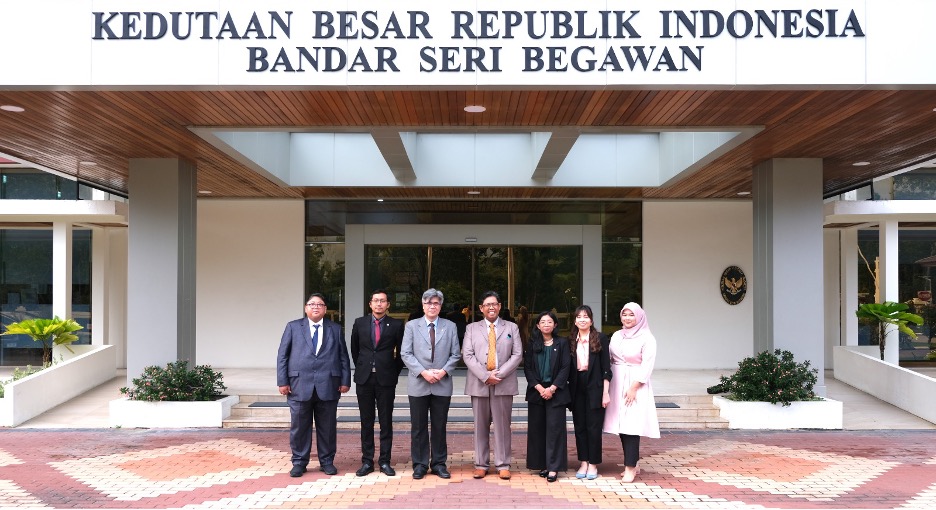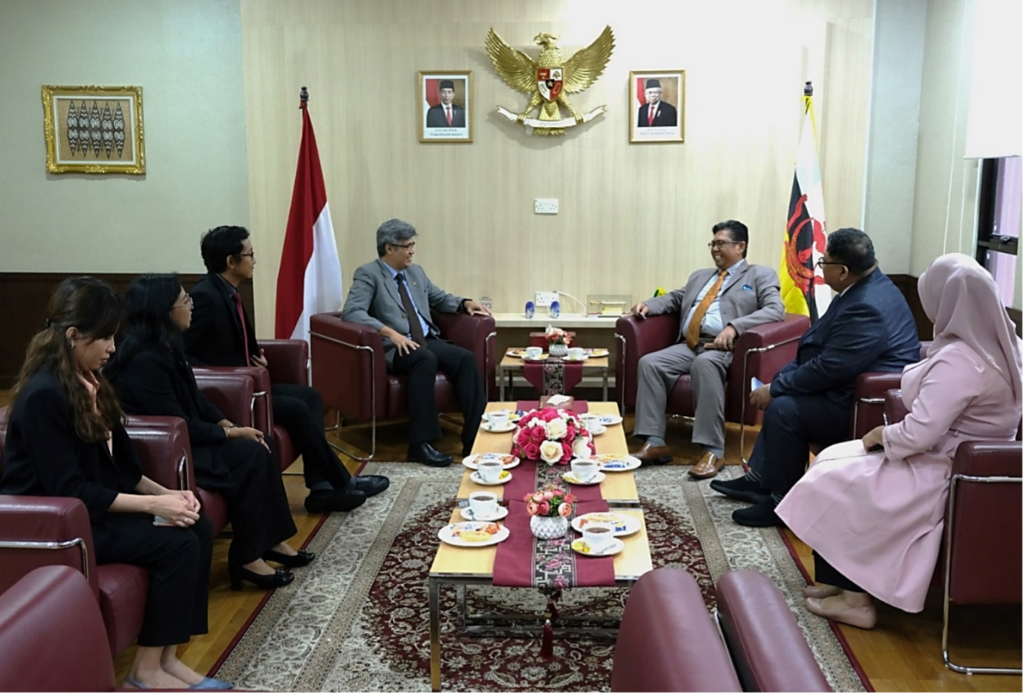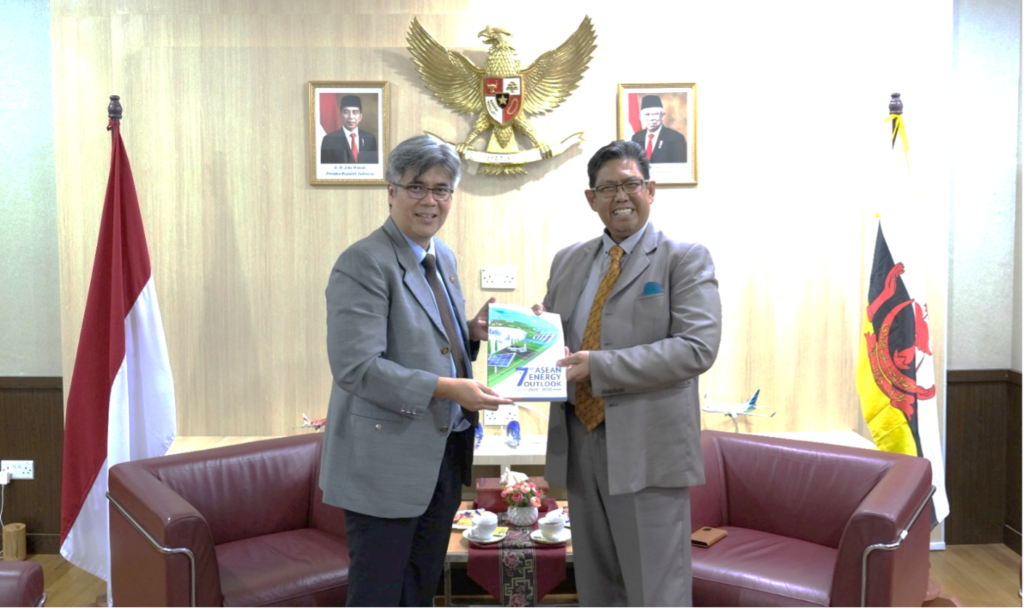Menu
 Photo 1. ACE delegation with Mr Irwan Iding (Chargé D’affaires of the Embassy of the Republic of Indonesia in Brunei Darussalam) and Mr Pramudya Sulaksono (Minister Counsellor of the Embassy of Republic of Indonesia in Brunei Darussalam), in front of the embassy. (Credit: Embassy of the Republic of Indonesia in Brunei Darussalam)
Photo 1. ACE delegation with Mr Irwan Iding (Chargé D’affaires of the Embassy of the Republic of Indonesia in Brunei Darussalam) and Mr Pramudya Sulaksono (Minister Counsellor of the Embassy of Republic of Indonesia in Brunei Darussalam), in front of the embassy. (Credit: Embassy of the Republic of Indonesia in Brunei Darussalam)
ASEAN Centre for Energy (ACE) delegations were invited to the Embassy of the Republic of Indonesia in Brunei Darussalam. Key discussions were centred around bilateral energy cooperation. The meeting aimed to promote stronger collaboration among ASEAN member states, emphasising the potential for joint energy initiatives and projects to meet the region’s energy needs efficiently and sustainably.
During the discussion, Mr Irwan Iding, Chargé D’affaires/Deputy Chief of the Embassy of the Republic of Indonesia in Brunei Darussalam, raised concern over the economic cooperation between the two countries during the spur of the energy transition. He mentioned that the dominant cooperation sector remains in the oil and gas sector and consulted on how Indonesia can be better positioned.

Photo 2. Discussion between ACE delegations and the Embassy of the Republic of Indonesia to Brunei Darussalam
Dr Nuki Agya Utama, Executive Director of ACE, highlighted several findings from the 7th ASEAN Energy Outlook (AEO7), the official reference on regional energy projection up to 2050. He highlighted diversification of bilateral cooperation may include the interconnection of energy through the planned Brunei-Indonesia-Malaysia-Philippines Power Integration Project (BIMP-PIP). Under Indonesia’s ASEAN Chairmanship this year, the interconnection agenda has been put at the forefront, including the BIMP-PIP. Thus, strengthening bilateral cooperation between Indonesia and Brunei Darussalam can play an important role in enabling this transmission initiative aside from the existing Lao PDR-Thailand-Malaysia-Singapore (LTMS) PIP. AEO7 projected that interconnection would contribute heavily to the energy transition to lay out higher penetration of green technologies and the region’s supply security.
He added that the Smart Power Program (SPP) by USAID, launched during the Senior Official Meeting on Energy in ASEAN Secretariat last month, will also support the feasibility study of BIMP-PIP.
The meeting also emphasised the significance of Brunei’s gas resources as an enabler for the Borneo region, particularly in light of the soon-to-be new capital of Indonesia, Nusantara, located at the heart of Borneo Island. Brunei’s gas reserves were highlighted as a reliable baseload for the Borneo region, supporting power generation and potentially facilitating a gas pipeline to ensure a stable energy supply which also falls under the Trans-ASEAN Gas Pipeline (TAGP) programme under the ASEAN Plan of Action for Energy Cooperation (APAEC) or ASEAN Energy Blueprint.

Photo 3. Dr Nuki Agya Utama handed over the 7th ASEAN Energy Outlook (AEO7) to Mr Irwan Iding
